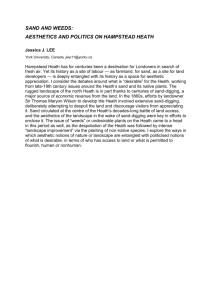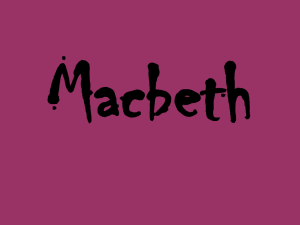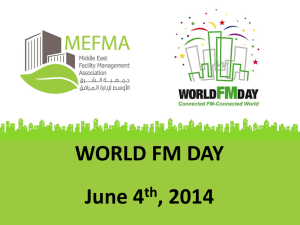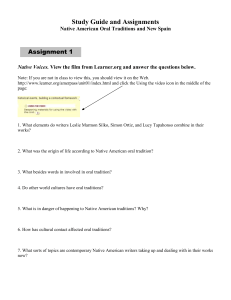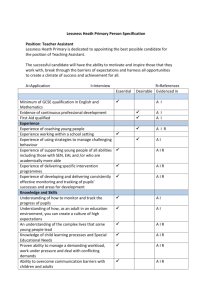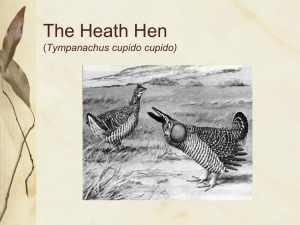Leseliste Amerikanische Literaturgeschichte
advertisement
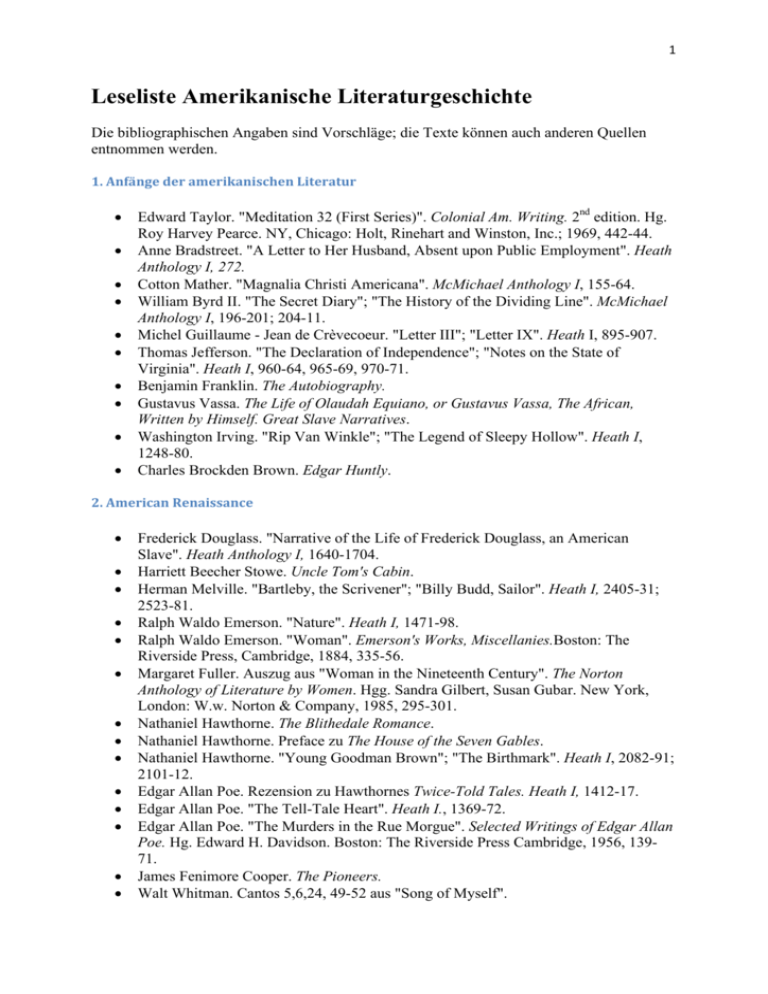
1 Leseliste Amerikanische Literaturgeschichte Die bibliographischen Angaben sind Vorschläge; die Texte können auch anderen Quellen entnommen werden. 1. Anfänge der amerikanischen Literatur • • • • • • • • • • Edward Taylor. "Meditation 32 (First Series)". Colonial Am. Writing. 2nd edition. Hg. Roy Harvey Pearce. NY, Chicago: Holt, Rinehart and Winston, Inc.; 1969, 442-44. Anne Bradstreet. "A Letter to Her Husband, Absent upon Public Employment". Heath Anthology I, 272. Cotton Mather. "Magnalia Christi Americana". McMichael Anthology I, 155-64. William Byrd II. "The Secret Diary"; "The History of the Dividing Line". McMichael Anthology I, 196-201; 204-11. Michel Guillaume - Jean de Crèvecoeur. "Letter III"; "Letter IX". Heath I, 895-907. Thomas Jefferson. "The Declaration of Independence"; "Notes on the State of Virginia". Heath I, 960-64, 965-69, 970-71. Benjamin Franklin. The Autobiography. Gustavus Vassa. The Life of Olaudah Equiano, or Gustavus Vassa, The African, Written by Himself. Great Slave Narratives. Washington Irving. "Rip Van Winkle"; "The Legend of Sleepy Hollow". Heath I, 1248-80. Charles Brockden Brown. Edgar Huntly. 2. American Renaissance • • • • • • • • • • • • • • Frederick Douglass. "Narrative of the Life of Frederick Douglass, an American Slave". Heath Anthology I, 1640-1704. Harriett Beecher Stowe. Uncle Tom's Cabin. Herman Melville. "Bartleby, the Scrivener"; "Billy Budd, Sailor". Heath I, 2405-31; 2523-81. Ralph Waldo Emerson. "Nature". Heath I, 1471-98. Ralph Waldo Emerson. "Woman". Emerson's Works, Miscellanies.Boston: The Riverside Press, Cambridge, 1884, 335-56. Margaret Fuller. Auszug aus "Woman in the Nineteenth Century". The Norton Anthology of Literature by Women. Hgg. Sandra Gilbert, Susan Gubar. New York, London: W.w. Norton & Company, 1985, 295-301. Nathaniel Hawthorne. The Blithedale Romance. Nathaniel Hawthorne. Preface zu The House of the Seven Gables. Nathaniel Hawthorne. "Young Goodman Brown"; "The Birthmark". Heath I, 2082-91; 2101-12. Edgar Allan Poe. Rezension zu Hawthornes Twice-Told Tales. Heath I, 1412-17. Edgar Allan Poe. "The Tell-Tale Heart". Heath I., 1369-72. Edgar Allan Poe. "The Murders in the Rue Morgue". Selected Writings of Edgar Allan Poe. Hg. Edward H. Davidson. Boston: The Riverside Press Cambridge, 1956, 13971. James Fenimore Cooper. The Pioneers. Walt Whitman. Cantos 5,6,24, 49-52 aus "Song of Myself". 2 • • Emily Dickinson. "There's a certain Slant of light" (Nr. 258); "Because I could not stop for Death" (Nr. 712); "I heard a Fly buzz when I died" (Nr. 465); "I'm ceded - I've stopped being Theirs" (Nr. 508). Heath I. Emily Dickinson. "Of Bronze and Blaze". Final Harvest: Emily Dickinson's Poems. Select. and Introd. Thomas H. Johnson. Boston, Toronto: Little, Brown and Cie., 1961, 49-50. 3. Jahrhundertwende • • • • • • • • • • • • • • Mark Twain. The Adventures of Huckleberry Finn. Heath II, 243-429. Mark Twain. "The Notorious Jumping Frog of Calaveras County". Anthology of Am. Lit. II. Realism to the Present. Hg. George McMichael. New York: Macmillan Publishing Co. Inc., 1974, 297-517; 279-84. William Dean Howells. A Modern Instance. Henry James. The Turn of the Screw. Thomas Nelson Page. "Marse Chan". In Ole Virginia, or Marse Chan and Other Stories. Chapel Hill: The Univ. of North Carolina Press, 1969, 1-38. Paul Laurence Dunbar. "The Ordeal at Mt. Hope". Folks from Dixie. New Jersey: The Gregg Press, 1968, 60-93. Charles Waddell Chesnutt. "The Sheriff's Children". The Wife of his Youth and Other Stories of the Color Line. Michigan: The Univ. of Michigan Press, 1968, 60-93. Kate Chopin. The Awakening. Norton Anthology II, 507-99. Kate Chopin. "Desirée's Baby"; "The Story of an Hour". Heath II, 628-32, 635-37. Charlotte Perkins Gilman. "The Yellow Wallpaper". Heath II, 761-73. Abraham Cahan. "Yekl". Yekl and the Imported Bridegroom and Other Stories of the New York Ghetto. NY: Dover Publications, Inc., 1970, 1-89. Theodore Dreiser. Sister Carrie. Edith Wharton. "The Other Two". Heath II, 987-1000. Edith Wharton. "Roman Fever". Heath II, 1024-1033. 4. Zwischen den Weltkriegen • • • • • • • • • • • • • Ernest Hemingway. "Hills Like White Elephants". Heath II, 1390-93. Ernest Hemingway. "The Killers". The Short Stories of Ernest Hemingway. NY: Charles Scribener's Sons, 1953, 279-89. Gertrude Stein. "The Gentle Lena". Norton Anthology of Lit. by Women, 1307-32. F. Scott Fitzgerald. The Great Gatsby. William Faulkner. The Sound and the Fury. Zora Neale Hurston. Their Eyes Were Watching God. Langston Hughes. Not Without Laughter. Richard Wright. "Long Black Song". Uncle Tom's Children. NY u.a.: Harper & row, Publishers, 1965, 103-28. Richard Wright. „Blueprint for Negro Writing“. The Black Aesthetic. Hg. A. Gayle, Jr.. N.Y.: Doubleday & Company, Inc., 1972, 315-26. Eugene O’Neill. The Emperor Jones. Complete Plays 1913-1920. New York: Literary Classics of the United States. Inc., 1988, 1029-61. Clifford Odets. Waiting for Lefty. Auch in Heath II, 1631-48. Wallace Stevens. „Sunday Morning“. Heath II, 1394-98. Ezra Pound. „Canto I“. Heath II, 1179-82. 3 • • • • • • • T.S. Eliot. „The Love Song of J. Alfred Prufrock“. Heath II, 1301-04. William Carlos Williams. „Young Sycamore“. Heath II, 1214. William Carlos Williams. „This is just to say“. McMichael II, 1367. William Carlos Williams. „At Dawn“. The Collected Poems of W.C. Williams Vol. 1,, 1909-1939. Hg. A. Walter Litz & Christopher Mac Gowan. NY: New Direction Books, 1986, 36. Louise Bogan. „Women“. Heath II, 1382. Langston Hughes. „Mother to Son“. Selected Poems. Langston Hughes. NY: Vintage Books, 1974, 187. Langston Hughes. „Ballad of the Landlord“. Montage of a Dream Deferred. Selected Poems, 38-9. 5. Nach dem 2. Weltkrieg • • • • • • • • • • • • • • • • • • Arthur Miller. Death of a Salesman. Tennessee Williams. A Streetcar Named Desire. Edward Albee. Who’s Afraid of Virginia Woolf?. Flannery O'Connor. "A Good Man is Hard to Find". Heath II, 1937-47. Robert Creeley. "For Love". Heath Anthology II, 2373-75. Alan Ginsberg. "Howl". Allen Ginsberg. Collected Poems 1947-1980. NY: Harper&Row, 1984. 126-33. Ralph Ellison. Invisible Man. Toni Morrison. Beloved. Leslie M. Silko. Ceremony. Malcolm X. The Autobiography. Bernard Malamud. “The Magic Barrel". The Magic Barrel. N.Y.: Avon Books, 1981, 172-91. Thomas Pynchon. The Crying of Lot 49. Maxin Hong Kingston. The Woman Warrior. Norman Mailer. Armies of the Night. Don DeLillo. White Noise. Tony Kushner. Angels in America, Millenium Approaches. New York: Theatre Communications Group, 1992. Cynthia Ozick. „The Shawl". The Shawl. NY: Alfred A. Knopf, 1989, 3-12. Sylvia Plath. „Daddy“. Heath II, 2432-34. 6. Filmliste Silent Film • • • D.W. Griffith, The Birth of a Nation, 1915 Charles Chaplin, The Gold Rush, 1925 King Vidor, The Crowd, 1928 Comedy • • • Frank Capra, It Happened One Night, 1934 Charles Chaplin, Modern Times, 1936 Billy Wilder, Some Like It Hot, 1959 4 Western • • • John Ford, Stagecoach, 1939 Fred Zinnemann, High Noon, 1952 John Ford, The Searchers, 1956 Drama/Thriller • • • • William Wyler, Dead End, 1937 Orson Welles, Citizen Kane, 1941 Alfrd Hitchcock, Rear Window, 1954 Martin Scorsese, Taxi Driver, 1976 War/Gangster • • • • Howard Hawks, Scarface: The Shame of the Nation, 1932 Michael Curtiz, Casablanca, 1942 Francis Ford Coppola, The Godfather, 1972 Francis Ford Coppola, Apocalypse Now, 1979 New/Off Hollywood • • • • Dennis Hopper, Easy Rider, 1969 George Lucas, American Graffiti, 1973 David Lynch, Blue Velvet, 1986 Quentin Tarantino, Pulp Fiction, 1994 7. Schwerpunkt „Theorie“ • • • • • • • • Jacques Derrida. „Structure, Sign and Play in the Discourse of the Human Sciences“. 1966; Übers. Alan Bass, 1978; Modern Criticism and Theory. Hg. David Lodge. London, N.Y.: Longman, 1988, 108-23. Roland Barthes. „The Death of the Author“. 1968; Übers. Stephen Heath, 1977; repr. Modern Criticism and Theory, 167-72. Michel Foucault. „What Is an Author?“ 1969; Übers. Joseph v. Harari, 1979; Modern Criticism and Theory, 197-210. Stanley Fish. „What Makes an Interpreation Acceptable?“ Is There a Text in This Class? The Authority of Interpretive Communities. Cambridge, London: Harvard Univ. Press, 1980, 338-55. Barbara Johnson. „Melville’s Fist: The Execution of Billy Budd“. The Critical Difference. Baltimore: John Hopkins U.P., 1982, 79-109. Terry Eagleton. „Introduction: What Is Literature?“ Literary Theory: An Introduction. Minneapolis: Univ. of Minneapolis Press, 1983, 1-16. Donna Haraway. „A Cyborg Manifesto: Science, Technology, and Socialist-Feminism in the Late Twentieth Century“. 1985; Simians, Cyborgs, and Women: The Reinvention of Nature. London: Free Association Books, 1991, 149-81. Gloria Anzaldúa. „La conciencia de la mestiza: Towards a New Consciousness“. 1987; American Feminist Thought at Century’s End: A Reader. Hg. Linda S. Kauffman. Cambridge: Blackwell, 1993, 427-40. 5 • • • • • • • Winfried Fluck. Theorien amerikanischer Literatur. Konstanz: Universitätsverlag Konstanz, 1987. Henry Louis Gates, Jr.. „The Signifying Monkey and the Language of Signifyin(g): Rhetorical Difference and the Orders of Meaning“. The Signifying Monkey: A Theory of Afro-American Literary Criticism. N.Y., Oxford: Oxford UP, 1988, 44-88. Trinh T. Minh-ha. „Outside In Inside Out“. 1988; When the Moon Waxes Red: Representation, Gender, and Cultural Politics. N.Y., London: Routledge, 1991, 65-78. Tania Modleski. „Introduction: Hitchcock, Feminism, and the Patriarchal Unconscious“. The Women Who Knew Too Much: Hitchcock and Feminist Theory. N.Y., London: Routledge, 1988, 1-15. Valerie Smith. „Black Feminist Theory and the Representation of the ‘Other´“. Changing Our Own Words: Essays on Criticism, Theory, and Writing by Black Women. Hg. Cheryl A. Wall. New Brunswick, N.J.: Rutgers U.P., 1989, 38-57. Judith Butler. „Performative Acts and Gender Constitution: An Essay in Phenomenology and Feminist Theory“. Performing Feminism: Feminist Ciritcal Theory and Theatre. Hg. Sue-Ellen Case. Baltimore: John Hopkins U.P., 1990, 27082. Wolfgang Karrer and Hartmut Lutz. „Minority Literatures in North America: From Cultural Nationalism to Liminality“. Minority Literatures in North America: Contemporary Perspectives. Hg. Karrer und Lutz. Frankfurt/M.: Peter Lang, 1990, 1164. ANMERKUNG: Die Angaben zu den Anthologien beziehen sich auf folgende Bände: • • • McMichael, George, Hg. Anthology of American Literature I. Colonial Through Romantic. NY: Macmillan Publishing, 1974. Gilbert, Sandra and Susan Gubar, Hgg. The Norton Anthology of Literature by Women. NY, London: Norton, 1985. Lauter, Paul, Hg. The Heath Anthology of American Literature (2 Bände). Lexington, Mass., Toronto: D.C. Heath and Co., 1990. Weitere Hinweise: Bei der Literatursuche zuerst in der „TC“-Abteilung der Bibliothek nachschauen. Hilfreiche Sekundärliteratur: • • • • • • • Hubert Zapf, Hg. Amerikanische Literaturgeschichte. Stuttgart: Metzler, 1996. Mario Klarer, Einführung in die anglistisch-amerikanische Literaturwissenschaft. Darmstadt: Wiss. Buchgesellschaft (2. überarb. Auflage, 1995). Heinz Ickstadt. Der amerikanische Roman im 20. Jhdt. Darmstadt: Wiss. Buchgesellschaft, 1998. Winfried Fluck. Das kulturelle Imaginäre. Eine Funktionsgeschichte des amerik. Romans 1790-1900. Frankfurt/M.: Suhrkamp, 1997. Susanne Opfermann. Diskurs, Geschlecht und Literatur: amerikanische Autorinnen des 19. Jhdts. Stuttgart: Metzler, 1996. Sacvan Bercovitch. The Rites of Assent: Transformation in the Symbolic Construction of America. N.Y.: Routledge, 1993. Werner Sollors. Beyond Ethnicity. Consent and Descent in Am. Culture. N.Y./Oxford: Oxford UP, 1986. 6 • • • Russell J. Reising. The Unusable Past: Theory and The Study of American Literature. N.Y. u.a.: Methuen, 1986. Lawrence Buell. New England Literary Culture: From Revolution through Renaissance. Cambridge: Cambridge UP, 1986. D.H. Lawrence. Studies in Classic American Literature. N.Y.: Doubleday, 1951.
